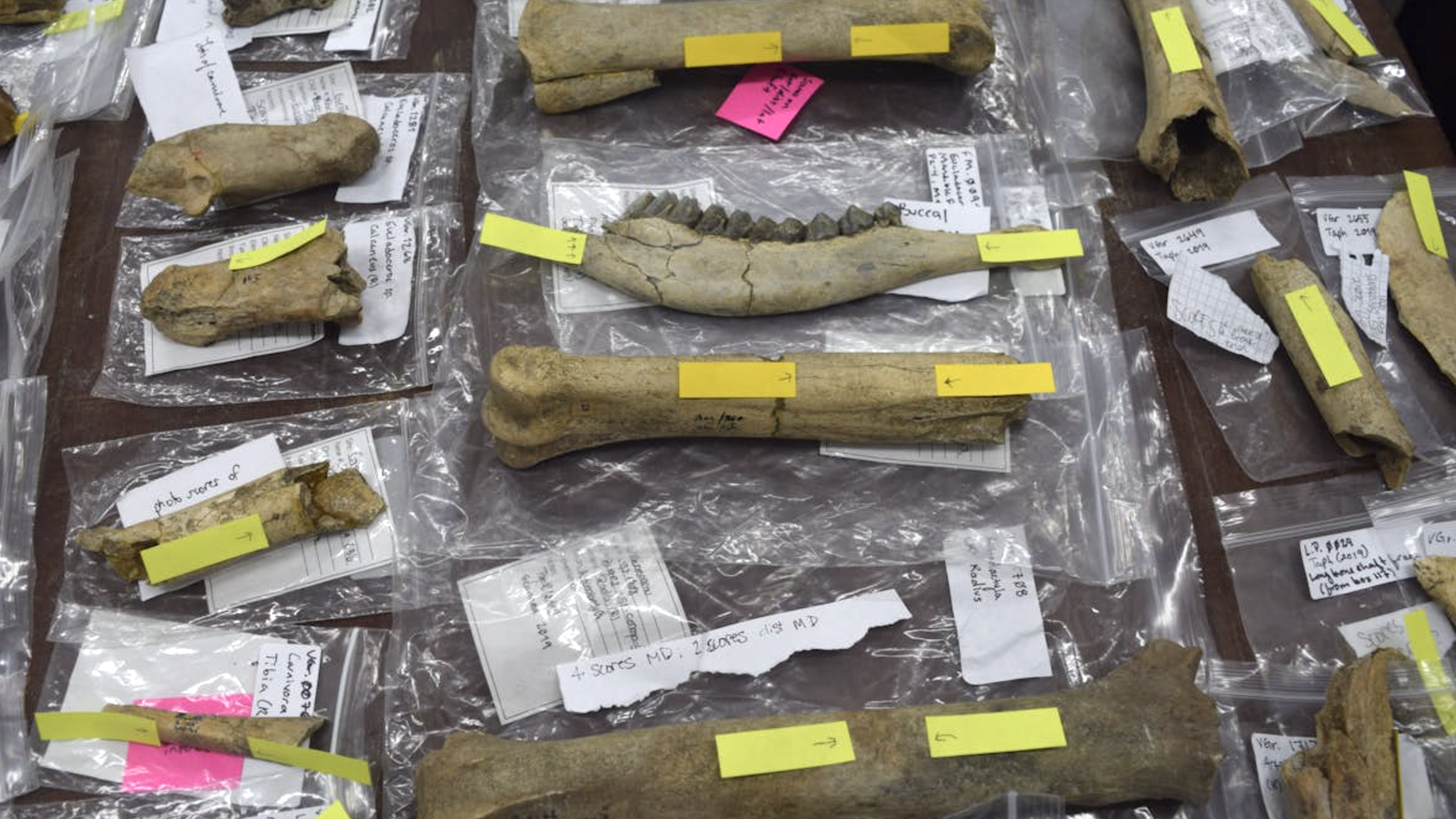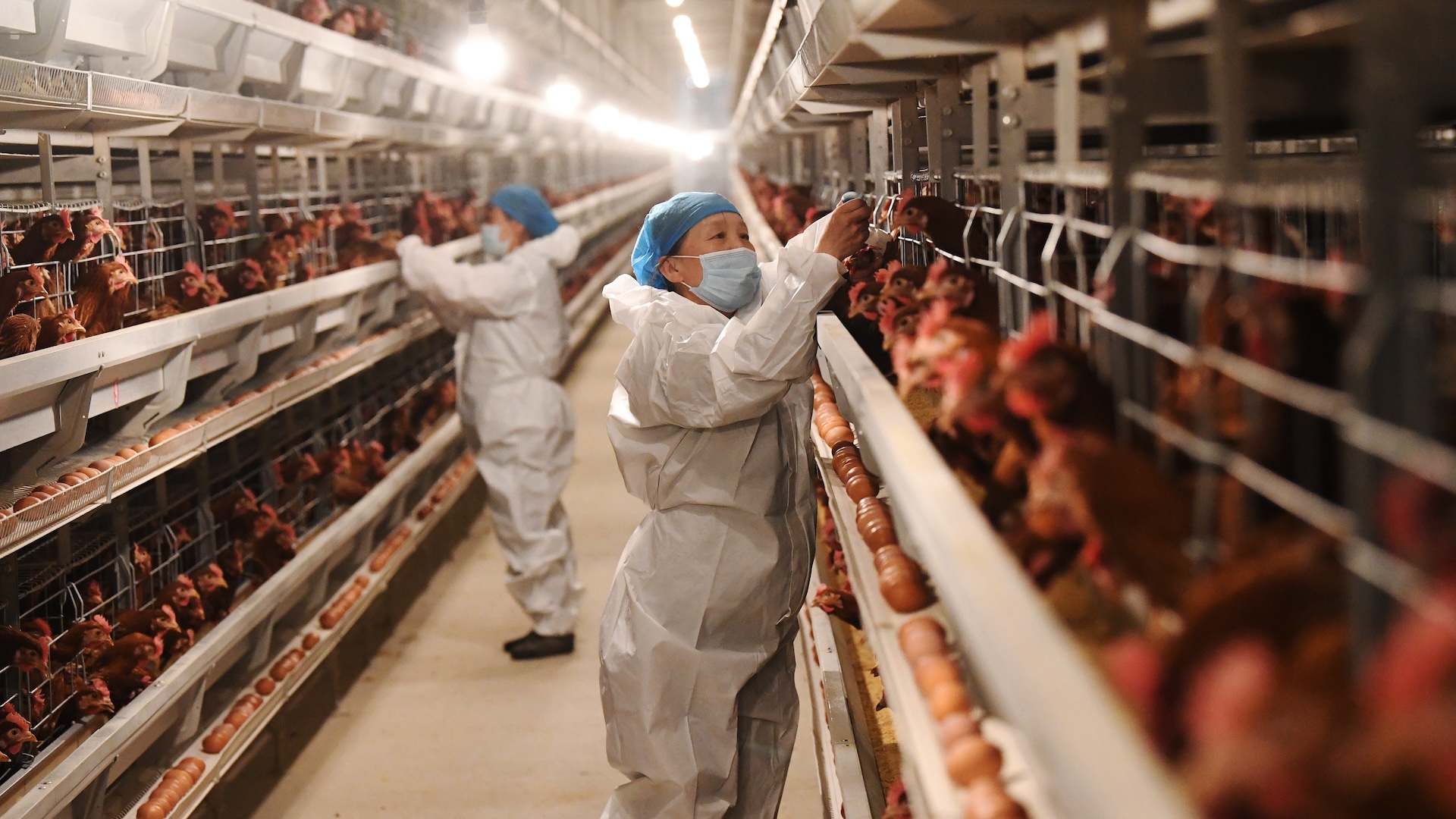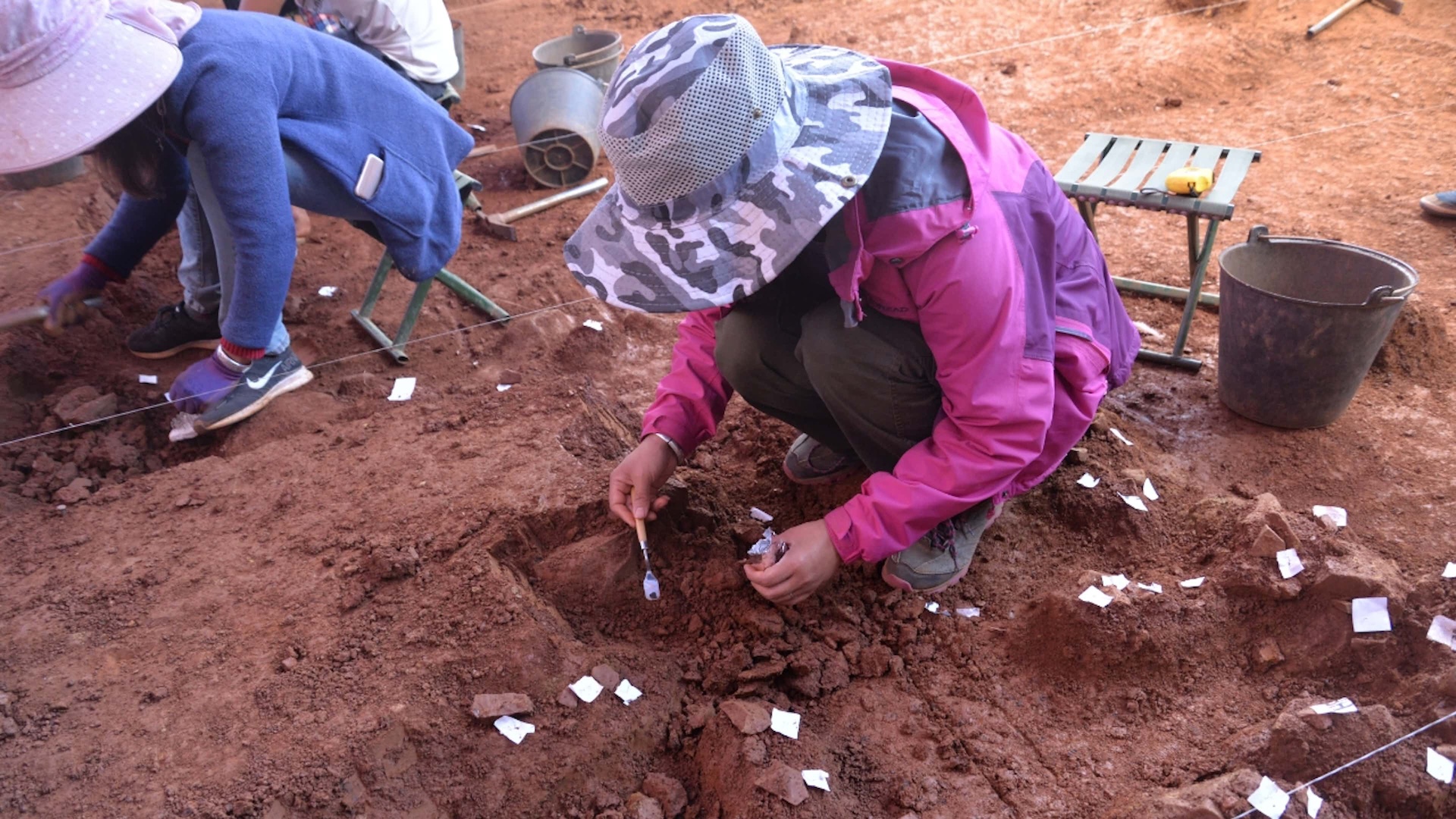
What was the Worst #ScienceFail of 2014? (Op-Ed)
Aaron Huertas is a science communications officer at the Union of Concerned Scientists (UCS), where he helps scientists represent their work to the public and policymakers. This article is part of UCS's 'Got Science?' series. Huertas contributed this piece to Live Science's Expert Voices: Op-Ed & Insights.
Science isn't easy. Scientific research is often difficult, tedious and can take years to come to fruition. And it's because it takes such dogged effort to reach solid scientific conclusions that we trust the work scientists do.
Unfortunately, too many politicians and institutions reject or distort scientific conclusions they don't like. We all lose when political spin runs roughshod over evidence scientists have uncovered regarding risks to our health and well-being. Sadly, such incidents are now commonplace enough to have their own hashtag: #ScienceFail. Here are our nominations for the worst cases of #ScienceFail from 2014. [The Dark Side of Research — When Chasing Prestige Becomes the Prize ]
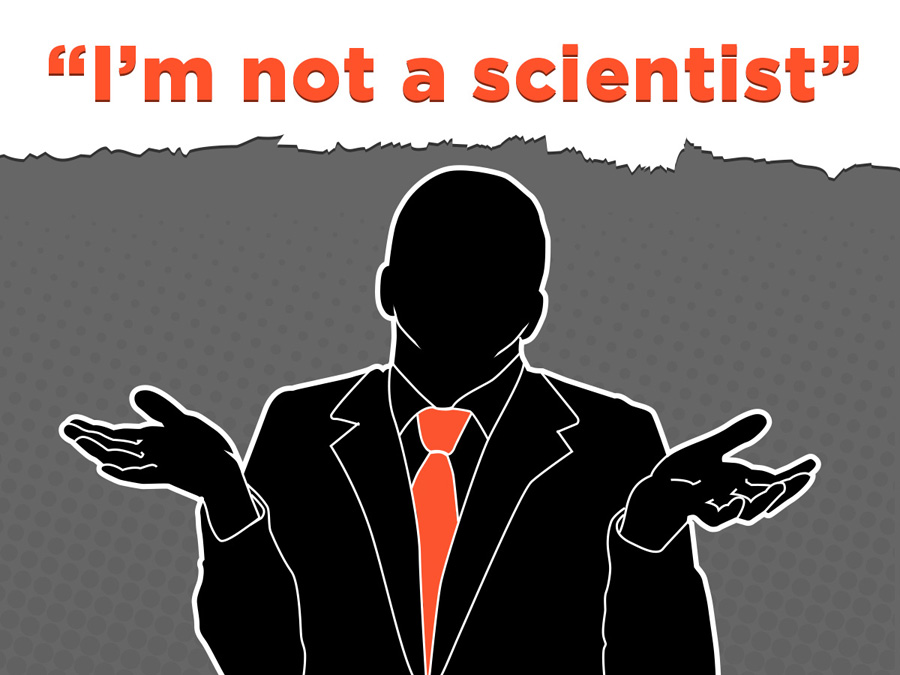
1. "I'm not a scientist."
You're a politician and not a scientist? We know!
Over the past year, elected leaders who have a strained relationship with science seemed to all adopt the same strategy: Just say, "I'm not a scientist" whenever anyone asks you about established facts.
Louisiana governor Bobby Jindal said it when asked about teaching evolution in schools. Andrew Cuomo, the governor of New York, used it to avoid answering questions about fracking. And many more politicians said "I'm not a scientist" when asked about climate change.
Of course, we don't elect politicians to play scientist in the first place. Andrew Rosenberg, the head of the Center for Science and Democracy at the Union of Concerned Scientists and a veteran of many scientific advisory bodies put it this way: "…politicians aren't engineers, but they approve infrastructure projects. They aren't accountants, but they create budgets. They aren't inventors, but they make patent laws…saying 'I'm not a scientist' in the face of scientific evidence is a cheap cop-out."
Thankfully, with retorts like that from Rosenberg and others, some politicians have been embarrassed into dropping the line, notably Florida Gov. Rick Scott, who presides over a state on the front lines of sea-level rise . Hopefully, more politicians will stop using this dodge and start engaging in real debates about dealing with the realities we face.
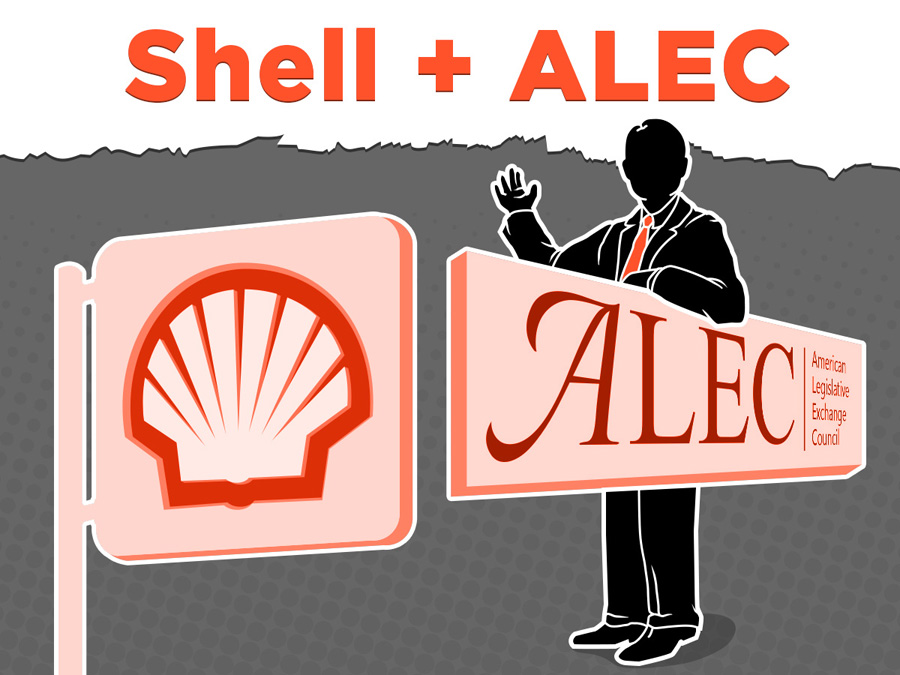
2. Shell underwrites deceptive anti-climate group
At first glance, one might think Shell is relatively enlightened about climate science. The company uses an internal price on carbon and has signed on to constructive efforts to deal with climate change. Shell's CEO explicitly told the Washington Post, "Climate change is real and it's a threat that we want to act on. We're not aligning with the skeptics." (Setting aside for a second whether or not folks who reject climate science are really "skeptics.")
But Shell still supports the American Legislative Exchange Council (ALEC), a group that works closely with corporations and state legislators to pass model bills around the country. ALEC has a long history of spreading misinformation about climate science to state legislators. It has also supported bills that would require teachers to inject misinformation about climate science into classrooms. And in several states, ALEC-affiliated legislators have tried to roll back renewable electricity standards.
Why the disconnect? David Hone, Shell's climate change advisor, explained to one of my colleagues that "despite [ALEC's] position on climate issues" Shell still "place[s] a value on their ability to convene state legislators."
That answer strikes us at UCS as insufficient. There are other groups out there that convene state legislators, after all, and they don't misinform their members about climate science. Further, external sustainability advisors have told Shell that working with groups such as ALEC can undermine trust among the company's stakeholders. Tech giants, including Google and Facebook, have already severed ties with ALEC; so has Occidental Petroleum, another fossil fuel company. [Google Cuts Ties With Climate-Denier Group ]
While Shell is just one of 90 institutions that have produced most historic, industrial, climate emissions, it's also a company that recognizes the realities and risks of climate change in many ways. But it earns inclusion on our #ScienceFail list for 2014 for its continued support of ALEC.
The bottom line is clear: Shell should leave ALEC, too.
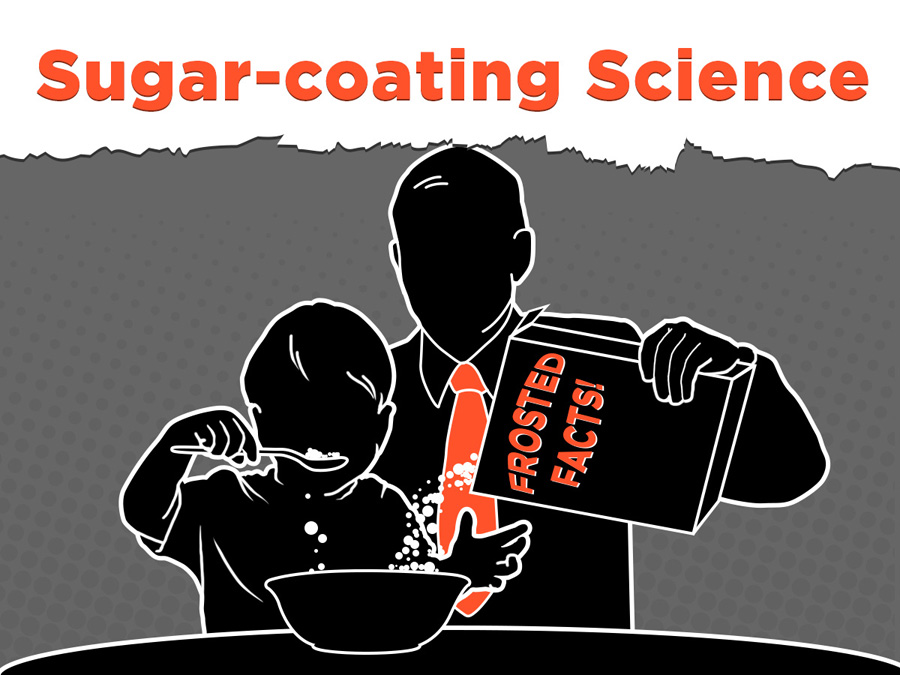
3. Sugar Association sugar-coats science
The evidence is clear that overconsumption of sugar is giving Americans heart trouble and contributing to the obesity epidemic. By one estimate, Americans eat 16 percent of their daily calories from sugarsthat food companies add to products.
The U.S. Food and Drug Administration (FDA) understands the risks and has proposed putting "added sugars" on the ubiquitous Nutrition Facts label. But the Sugar Association, a trade group representing U.S. sugar interests, is pushing back against the science and the FDA's proposal.
In June, Sugar Association president Andrew Briscoe told the FDA "there is no preponderance of evidence" to justify an added sugar label. Briscoe ignored research on chronic diseases such as diabetes and also claimed that an added sugar label would create a record-keeping headache for food manufacturers. The truth, as an FDA official noted, is that food companies already track sugar measurements to meet existing labeling requirements.
Often, surprising amounts of added sugar wind up in products marketed as healthy, including soup, yogurt and energy bars. People deserve to know what's in their food — and what effects those ingredients can have on their health. The Sugar Association's job is to protect its member companies' bottom lines, but they should do so without ignoring or distorting science. [The Amount of Hidden Sugar in Your Diet Might Shock You (Op-Ed )]
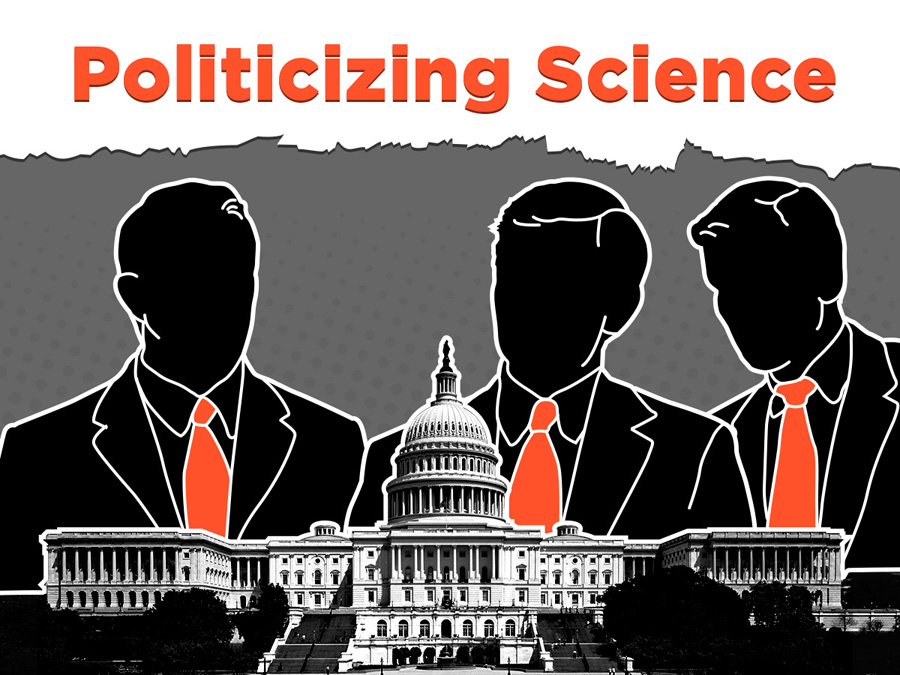
4. House Science Committee still failing science
The last time we rounded up the worst #ScienceFail examples, we included the House Committee on Science, Space and Technology. Once a proud bastion of sensible, science-based policymaking, the committee has increasingly become another front in Capitol Hill's endless partisan battles.
Under the leadership of Texas's Lamar Smith (R), the committee spent months crafting a bill that would effectively bar the U.S. Environmental Protection Agency from using the best-available public health science to set air pollution standards. Members ignored scientists and public health experts who pointed out the bill's failings.
Further, Rep. Smith, dismissed a landmark federal climate report released in April as "unscientific." Ironically, the report was mandated by an act of Congress.
The committee is also spending an inordinate amount of time scrutinizing grants from the U.S. National Science Foundation. While it's appropriate for members of Congress to debate science funding, Sciencemagazine described Rep. Smith's decision to investigate individual grants as "unprecedented" and "bizarre."
As bare-knuckled as politics in the House can get, the House Science Committee shouldn't let partisanship trample science.
Be Worried, but Be Hopeful, Too
There's no getting around the fact that public dialogues about pressing issues are increasingly out of line with science. While it leaves many of us who support the work that scientists do feeling despondent, we shouldn't lose sight of the opportunities we have to address these problems.
All around the country, scientists and citizens are banding together to improve the role science plays in our democracy, especially at the local and state level. Our five Got Science? Champs, for instance, are improving water quality, vaccination rates, climate education and even a governor's stance on the reality of climate change.
Their stories are inspiring. And if they can each turn a #ScienceFail into a #ScienceWin, we can, too.
Follow all of the Expert Voices issues and debates — and become part of the discussion — on Facebook, Twitter and Google+. The views expressed are those of the author and do not necessarily reflect the views of the publisher. This version of the article was originally published on Live Science.
Sign up for the Live Science daily newsletter now
Get the world’s most fascinating discoveries delivered straight to your inbox.
